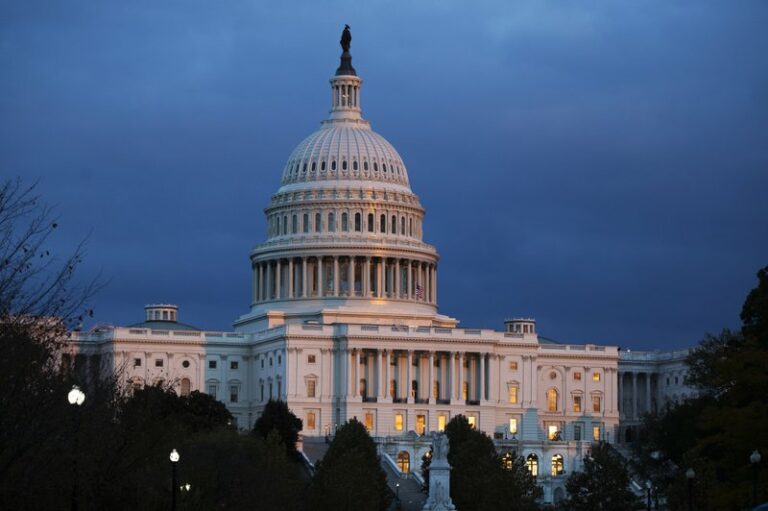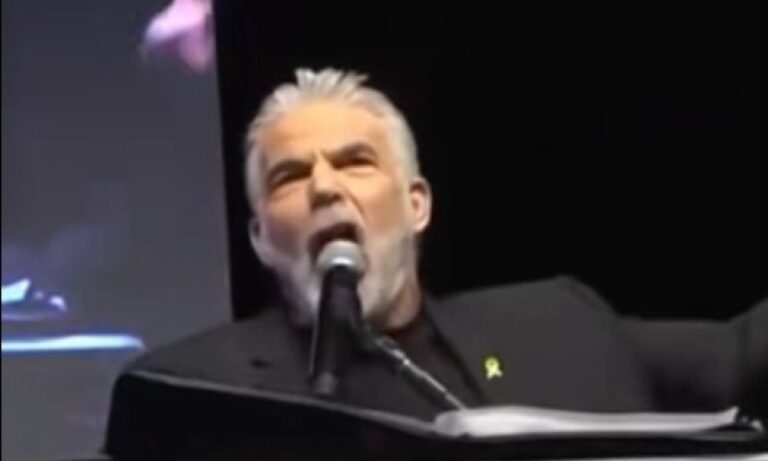The Senate will gavel in Monday as the coronavirus rages, returning to an uncertain agenda and deepening national debate over how best to confront the deadly pandemic and its economic devastation.
With the House staying away due to the health risks, and the 100 senators convening for the first time since March, the conflicted Congress reflects an uneasy nation. The Washington area remains a virus hot-spot under stay-home rules.
Tops on the Senate agenda is not necessarily the next virus aid package, despite a nationwide jobless rate that’s approaching Great Depression-level heights and pleas from the governors for more money.
“There’s kind of a pause period right now,” said White House’s Larry Kudlow, director of the national economic counsel, on CNN. “Let’s see how it’s doing as we gradually reopen the economy.”
Senate Republicans are trying to set the terms of debate, frustrated that House Speaker Nancy Pelosi was able to fill up earlier aid bills with Democratic priorities. They’re reluctant to unleash federal funds beyond the nearly $3 trillion Congress already approved in virus relief.
“We are going to need more help,” Republican Gov. Larry Hogan of Maryland, the chairman of the National Governors Association, said on CNN.
Instead, Senate Republicans are counting on the country’s reopening to kick-start the economy as their best hope to limit a new round of big spending on virus aid.
President Donald Trump, on the eve of the Senate’s return, held a town hall encouraging Americans to get back to work.
“We have to reopen our country,” Trump said, even as he revised upward his projection for the total U.S. death total to 80,000 or 90,000.
The COVID-19 crisis has all but closed Congress since late March, a longer absence than during the 1918 Spanish Flu or the 2001 terror attacks.
In making a snap decision to return, Senate Majority Mitch McConnell said the Senate cannot “sit on the sidelines.” He compared the senators to the essential work force of grocery clerks, truck drivers and others keeping Americans fed during the crisis.
Yet re-opening part of Capitol Hill poses health risks not just for the lawmakers but the cooks, cleaners, police officers and other workers who keep the lights on at the Capitol complex.
Capitol Hill erupted late last week after the attending physician informed top GOP officials the health office did not have the means to perform instant virus tests on returning lawmakers or staff.
Over the weekend, Trump himself offered Congress access to the instant virus test system used to screen visitors to the White House.
But in an extraordinary rebuff, McConnell and Pelosi said in a rare joint statement Saturday that they would “respectfully decline” the offer and instead direct resources to the front lines “where they can do the most good.”
Senators will instead return to a partially reopened Capitol Hill with new guidelines, including the recommendation that senators wear masks — blue face coverings will be available for free — keep their distance and leave most staff at home. Hand sanitizer is back in stock. But public access will be limited, including at public hearings. The Capitol itself remains closed to visitors and tours.
Democrats complain the risks of reopening the Capitol complex is not worth the noticeably light agenda, which is focused on confirming Trump’s judicial and executive nominees rather than the virus pandemic.
With more than 65,000 U.S. deaths due to the virus and 30 million Americans suddenly unemployed, Democratic senators say the focus needs to be singular — to ease this crisis and prevent a second wave of infections.
“If we’re going to go back, let’s do something about COVID,” Senate Democratic leader Chuck Schumer said.
McConnell has loaded up the agenda with hearings for Trump’s nominees, including Justin Walker, a conservative, McConnell-backed pick to be a federal judge on the U.S. Courts of Appeal in the District of Columbia Circuit, which is seen as a stepping stone to the Supreme Court.
A nomination hearing also is scheduled for John Ratcliffe, the Texas Republican congressman who is Trump’s choice to lead the Office of the Director of National Intelligence.
Several committees will meet to debate issues related to the virus outbreak, including the nominee for a new oversight commission. The Health Committee will hold a session on potential cures and the Commerce Committee a hearing on the airline industry.
For all that’s changed during the pandemic, some traditions remain in Congress.
Republican senators still plan to sit down for their regular luncheons, though the physician’s social distancing guidance limits them to three to a table. It was after one of their lunches in March that several senators went into self-quarantine because of their exposure to fellow GOP Sen. Rand Paul of Kentucky, who tested positive.
Democrats, who will meet for lunch over conference call, are assessing whether to appear in person for the committee hearings or dial in remotely.
The physician’s office sent guidelines late Friday encouraging Senate offices to minimize staff presence and reschedule any visitors who are visibly ill with “shaking chills” or “vomiting.”
But for Republicans, operating the Senate even in a diminished capacity aligns with Trump’s effort to return to a sense of normalcy, despite the ongoing health risks.
(AP)











